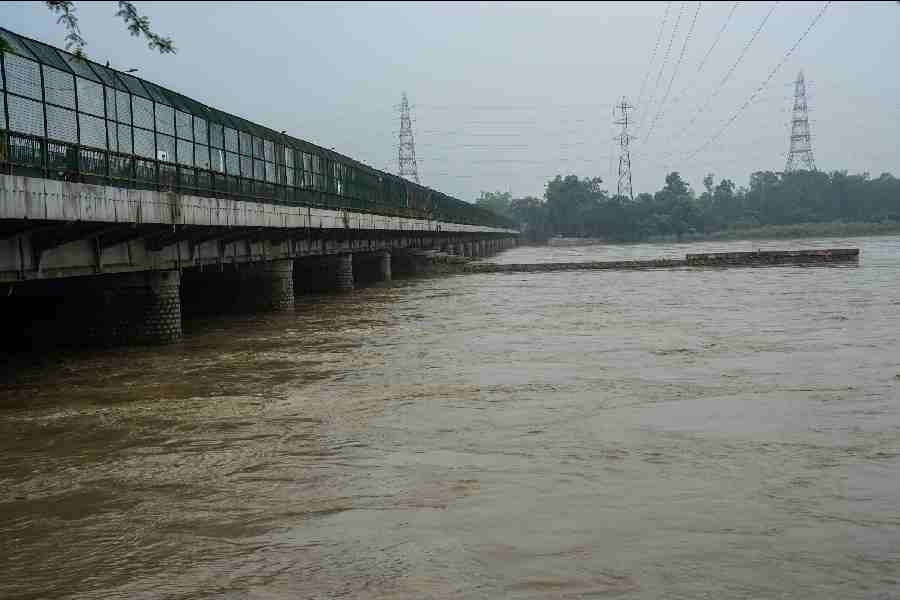Faecal contamination in the Yamuna river hit an all-time high for the month of September, according to a recent report.
Levels of faecal coliform bacteria -- a key indicator of untreated sewage -- surged to 4,900,000 most probable number (MPN) per 100 millilitres, which is 1,960 times the standard of 2,500 units and 9,800 times the desired limit of 500 units, the report by the Delhi Pollution Control Committee (DPCC) said.
This is the highest recorded since February 2022, when faecal coliform levels were 6,300,000 units, as measured by the Agra Canal station, it added.
Further, pollution indicators for faecal coliform remained "disturbingly" high, despite a significant boost in water flow from monsoon rains, which helped slightly improve dissolved oxygen (DO) and biochemical oxygen demand (BOD) levels, the report said. While DO measures oxygen dissolved in water, BOD refers to oxygen amounts required to break down organic matter.
The national capital recorded nearly 1,030 millimetres of rainfall during the 2024 monsoon season, according to the India Meteorological Department.
The report also showed that pollution levels intensified as the river flowed through the city.
"At Palla, where the river enters Delhi, faecal coliform levels remained within safe limits at 1,600 units, while DO and BOD were recorded at eight milligrams per litre and three milligrams per litre, respectively," it said.
"However, as the Yamuna moved further downstream to the ISBT bridge (Kashmere Gate), faecal coliform levels shot up to 240,000 units, with BOD at 23 milligrams per litre -- both far beyond permissible levels," the report said.
Except for the headline, this story has not been edited by The Telegraph Online staff and has been published from a syndicated feed.










